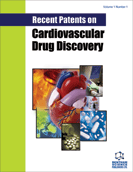Abstract
Soy is the principal plant that produces phytoestrogens, named so because they bind to the estrogen receptors, however weakly compared to the estrogens. Recent reviews concluded that there is no convincing evidence in favor of alleviation of menopausal symptoms by phytoestrogens. However, some studies suggest their efficacy. The question is discussed here, whether vegetable analogues should be used for replacement therapy instead of physiological hormones, also because phytoestrogen preparations often contain a mixture of different components. There is a controversy: phytoestrogens are used to compensate for estrogen deficiency in menopause; but their estrogenic potential does not prevent from the use of soy in infant formulas and other foodstuffs. Feminizing effect of phytoestrogens and soy products may be subtle, detectable only in large populations. This matter should be clarified by independent research, which can be of importance for the future of soy in agriculture. Furthermore a tendency to present placebos and substances with unproven effects in the guise of evidence-based medications is discussed. In conclusion, research quality and possible influence by the industry should be taken into account defining inclusion criteria for studies into meta-analyses and reviews. The article presented patents discussion relevant to the article.
Keywords: Phytoestrogens, soybean, menopause, atherosclerosis, placebo, evidence-based medicine.
 25
25


